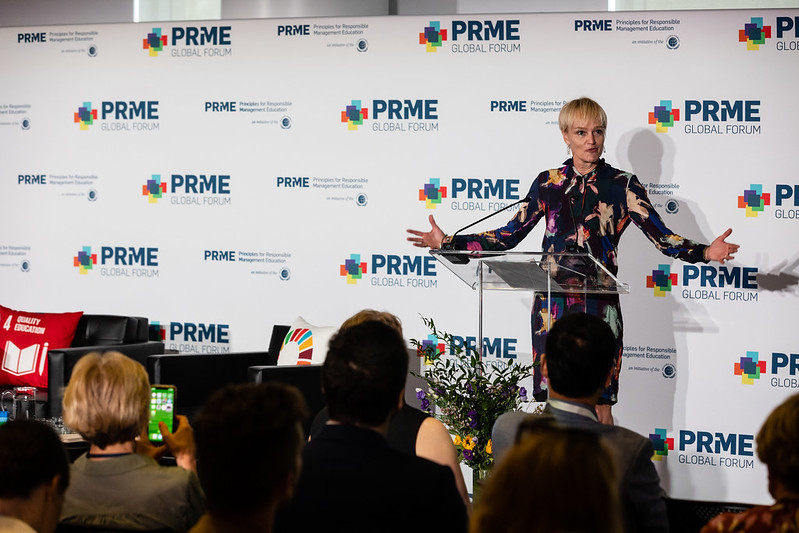Mette Morsing, global head of PRME, speaks during the 2023 Global Forum hosted by Fordham University’s Gabelli School of Business. The forum, the first held in-person since 2017, attracted business school deans, directors, students, and sustainability leaders from around the world. Courtesy photo
Growing up in Zimbabwe, Brendon Munashe Mahere got a first-hand look at the opportunities and challenges of sustainable development in the Global South. Initiatives surrounding clean energy, responsible consumerism, and ethical business practices in developing countries must be considered within a broader context involving economic hardships, gender inequality and political turmoil, he says.
As one of nine PRME Global Student Leaders around the world, Mahere gets to explore such considerations in the context of management education.
PRME – Principles for Responsible Management Education – is a United Nations-supported initiative with a mission to better incorporate responsible management practices in business school classrooms. Across the world, some 33% of higher education degrees come out of business management, law and economics, says Mette Morsing, Global Head of PRME since 2020.
“We educate 70 million students every year, and these students go into business and they change or maintain the world as it is,” Morsing says. “So, it matters what schools bring into these classrooms in terms of frameworks, theories, and values. This, for me, is a huge responsibility, and that is why business and business schools matter for the UN.”
PRME, which launched in 2007, now has more than 880 signatory management schools from around the world, organized into 17 regional chapters. The North American chapter, for example, has nearly 140 business schools, including Cornell SC Johnson College of Business, UC Berkeley Hass School of Business, Ivey Business School at Western University, and University of Toronto’s Rotman School of Management.
It is now transitioning to its next chapter. Morsing will step down in September after leading the group through more than three years of expansion and outreach.
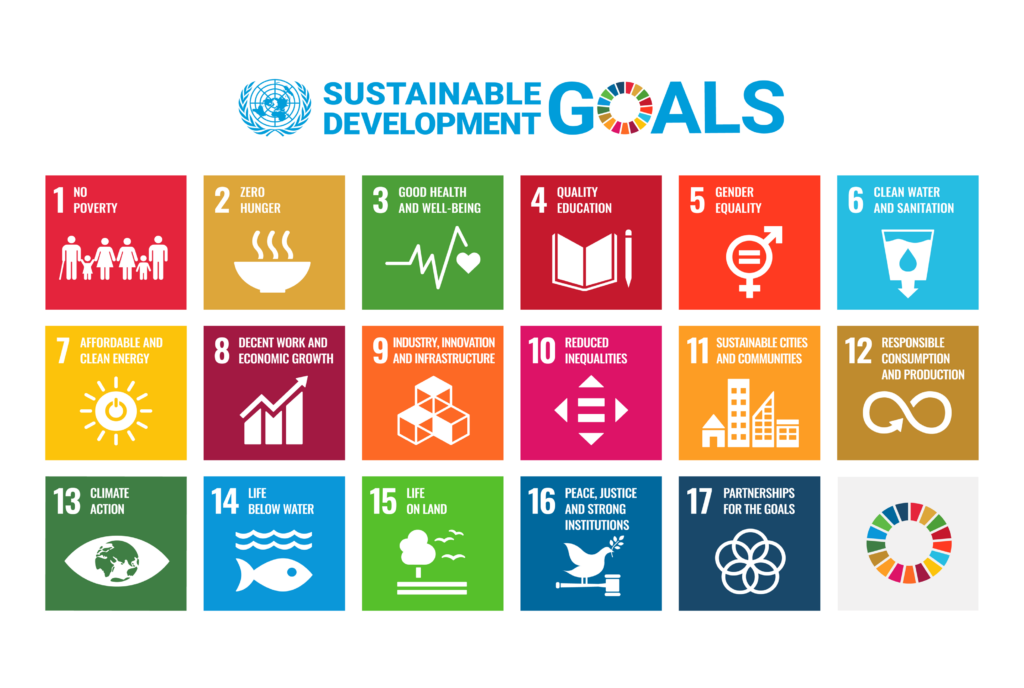
Source: un.org
PRME: A SHORT HISTORY
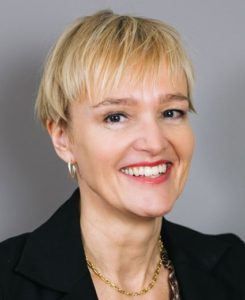
Mette Morsing
In 2000, the United Nations launched its Global Compact under the leadership of then Secretary-General Kofi Annan. The compact was a public recognition that governments alone cannot solve the world’s most pressing problems. The private sector is a large contributor to challenges surrounding human and labor rights, climate and environment, extreme poverty and more, and the private sector must be part of the solutions.
The compact calls on businesses and organizations across the globe to voluntarily align their strategies to advance the UN’s 17 Sustainable Development Goals (SDGs) adopted in 2015. These range from eliminating hunger to ensuring access to affordable and clean energy.
PRME grew out of the UN compact in 2007. Acknowledging the pivotal role education plays in shaping future leaders, PRME aims to instill a sense of responsibility in the curricula and culture of management schools. An international task force of 60 business school deans, university presidents, and others developed six PRME principles:
- Purpose: Develop the capabilities of students to be future generators of sustainable value for business and society at large and to work for an inclusive and sustainable global economy.
- Values: Incorporate into activities, curricula, and organizational practices the values of global social responsibility as portrayed in international initiatives such as the United Nations Global Compact.
- Method: Create educational frameworks, materials, processes and environments that enable effective learning experiences for responsible leadership
- Research: Engage in conceptual and empirical research that advances understanding about the role, dynamics, and impact of corporations in the creation of sustainable social, environmental and economic value.
- Partnership: Interact with managers of business corporations to extend knowledge of their challenges in meeting social and environmental responsibilities and to explore jointly effective approaches to meeting these challenges.
- Dialogue: Facilitate and support dialogue and debate among educators, students, business, government, consumers, media, civil society organizations and other interested groups and stakeholders on critical issues related to global social responsibility and sustainability.
PRME’s 880 signatory schools pledge to advance the six principles. In return, they get access PRME’s network of sustainability leaders across the globe. The network acts as an incubator of ideas while fostering collaboration, research, and best practice sharing on responsible management education.
GIVING VOICE TO STUDENTS FROM THE GLOBAL SOUTH
Morsing became the global head of PRME in 2020, and it has been in building mode ever since.
One of her first big goals was to create an engaged board of sustainability leaders from across the world. She recruited 21 such champions, a mix of academics, CEOs, business school deans, and UN professionals. Members include Hass School of Business dean Ann Harrison, former Unilever CEO Paul Polman, Sobhi Tawil from UNESCO, and others.
Morsing also secured millions in funding to strengthen the governance structure, expand staff, energize the regional chapters, and digitize its vast library of school sustainability reports and other resources. She added six new regional chapters, taking them from 11 to 17. And, under her leadership, PRME created new ways for students to engage with the organization.
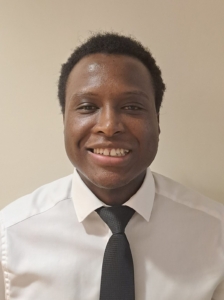
Brendon Munashe Mahere
“I saw PRME as an opportunity to voice what a lot of young Africans believe, which is that sustainable development should prioritize our vulnerable populations who disproportionately suffer from the effects of climate change and exploitative businesses,” says Mahere, an engineering and management science major at Al Akhawayn University in Ifrane, Morocco. He someday wants to work in the clean energy transition across Africa.
In PRME, Mahere served as the student representative on the task force drafting the PRME Climate Guideline, working alongside experts from around the world to define how business schools can become more intentional about sustainability. He also helped plan the first ever PRME Global Students Sustainability Award Africa, a recognition of student-driven efforts in promoting the United Nations’ SDGs in a business context.
“Infusing responsible management lessons in business school curricula has become a necessity. More and more young people are becoming conscious of the social and environmental impacts that businesses and brands have on the surrounding communities and the education system has to recognize this too,” he tells Poets&Quants.
“Future business leaders need to be trained on how to best balance profits with good governance and PRME does a great job of encouraging a collaborative approach towards this goal through its global network.”
‘A HIGH-POWERED ENERGY DRINK’
Morsing was a pioneer for sustainability in business schools long before joining PRME.
A professor of economics, Morsing founded Copenhagen Business School’s Center for Social Responsibility way back in 2002 when sustainability was largely viewed as a passing fad – especially in the context of management education. After four years of trying, she eventually got a sustainability course added to Copenhagen’s core MBA curriculum, “which at the time was very exceptional,” she tells P&Q.
During the financial crisis of 2009, interest in business sustainability accelerated. That year, 25 graduating Harvard MBAs created the MBA Oath to inspire MBAs to create value responsibly and ethically. Meanwhile, people started looking more critically at how ethics were taught in business schools, Morsing says.
By the time she was recruited to lead PRME in 2020, Morsing had a comfortable professorship at Stockholm School of Economics where she also served as the Mistra Chair and executive director of the Misum Center for Sustainable Markets. Though she had led the charge for Copenhagen Business School to join the PRME network in 2009, the initiative had stalled. Stepping into a leadership role at PRME was a leap of faith.
“I thought PRME was an unexplored gem. I could see the opportunities, but somehow it never really took off. We had all these wonderful schools from around the world, but it was a little bit dormant for a couple of years without leadership. I could see if somebody would take care of this gem, it could really be precious,” she says.
“When I got the opportunity, I felt so privileged to be invited on the journey. It was a privilege to look across not just the Nordic, or Europe, or the Western world, but actually to include the perspective of the Global South on what we think about sustainable development.”
Morsing set three big goals for herself: First, support and energize the regional chapters engaging business schools in all corners of the globe.
Second, enhance pedagogical skill and knowledge in school classrooms. To do this, she secured a $6 million grant from the Lego Foundation for PRME’s skillset program, The Impactful Five (i5): Learning in Education.
“We know with artificial intelligence coming that knowledge is available to everyone. That means our students are sometimes smarter than we are when we step into the classroom,” Morsing says. “We need to manage the classroom rather than manage the knowledge, and that means we need to be re-educated as pedagagues. We need to understand how to make students ask the questions, to think for themselves, to critically think about what is up, what is down, and how they can engage with the world to make the right decisions.”
And third, digitize PRME’s vast library of resources and member schools’ Sharing Information on Progress (SIP) reports required every two years. Through the SIPs, schools share their research, pedagogy, skills and curricula which other schools can use as a resource for their own efforts. Now, the reports are collected on the PRME website as PDFs, a clunky way to search and find information. Morsing secured a $1 million grant to create the PRME Commons platform, rolling out this year, which will organize and make more accessible this vast trove of resources.
“Mette didn’t just take a job. She was a force. She injected PRME with some high-powered energy drink,” says Tima Bansal, PRME board chair, and the Canada Research Chair in Business Sustainability at the Ivey Business School in Ontario.
All this lays the foundation for PRME ‘s next phase. Next month, Morsing will step down to take an opportunity she couldn’t pass up: Director of the Smith School of Enterprise and the Environment at the University of Oxford. She will also return to the classroom as professor of business sustainability. The PRME board is now recruiting for a new leader.
“Mette has big big shoes to fill, but I am confident that the people we have on the table have big feet,” Bansal says.
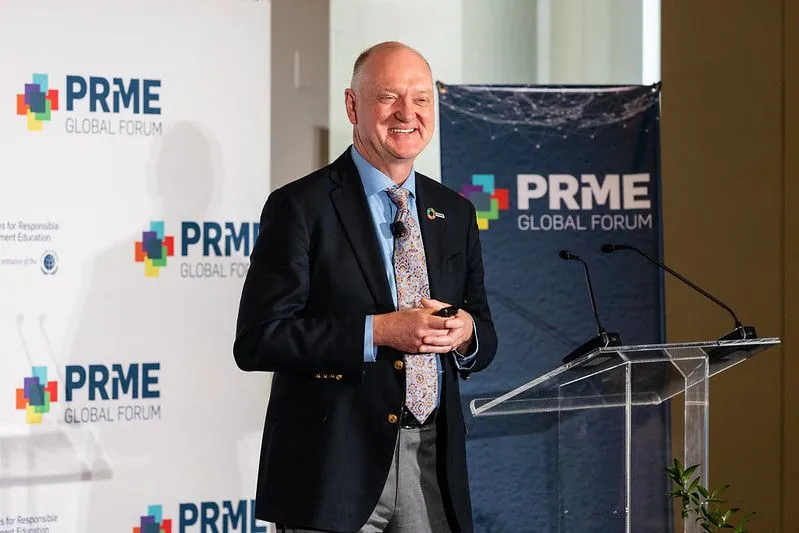
Andrew Karolyi was elevated to vice president the PRME Board of Directors at the 2023 Global Forum this June hosted by Fordham University’s Gabelli School of Business. Courtesy photo
‘SHARING, LEARNING, AND COLLABORATION’
One of Morsing’s lasting legacies will certainly be the 21-member board she recruited to further advance PRME’s mission and impact. That includes Bansal, the current chair, who is herself a pioneer of the field.
Bansal, a Fellow of the Royal Society of Canada, started researching green business strategies in the early 1990s, and she created one of the first core sustainability programs at a business school in 2002, a decade or more before it became a buzzword in management education. She is also founder and director of both the Network for Business Sustainability and Ivey’s Centre for Building Sustainable Value.
The board also includes vice chair Andrew Karolyi, the Charles Field Knight Dean of Cornell’s SC Johnson College of Business.
For 33 years, Karolyi was a “straight down the middle finance professor.” As other business management disciplines – supply chains, operations, management, etc. – started exploring ESG and sustainability issues, finance didn’t budge.
Karolyi’s turning point came in 2016 as executive director of The Review of Financial Studies, one of three mainstream finance journals.
“It dawned on me that we were nowhere in the sustainability world. Unlike the management scholars like Tima who were first movers in the late 90s and early 2000s, finance was nowhere. It was really critical that we do something to shock the field,” says Karolyi.
He created a competition for research proposals in climate finance that became a special issue of the journal, published in March 2020. “There are now no finance conferences around the world that don’t have two, three, four, five sessions around the (sustainability) working papers that are gurgling up,” Karolyi tells P&Q.
“I’m really proud to work with PRME because it is an opportunity to work with incredible people, like Tima, to mobilize change on another level, which is really about changing the face of business education around the world,” Karolyi says. “It’s a wonderful opportunity, a wonderful platform, but it’s an awesome responsibility as well. We have to do it right.”
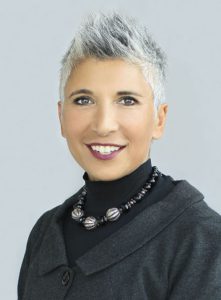
Tima Bansal, PRME chair
At its core, PRME is a sharing and learning platform for its signatory schools. It is also a collaboration network, not just for business schools, but for accrediting bodies, research organizations, business networks and others working together to mobilize a sustainable agenda.
“Thirty years ago when I was first starting out, you couldn’t really talk about sustainability at a business school. Compare that to now having, across the PRME board, people who are very senior in their organizations that are motivating change. When you see the dean of Cornell collaborating with the Network for Business Sustainability which now has 35,000 followers, we are at a point where we’ve matured,” says Bansal. “We will never get to where we want to go if we don’t figure out a way to get all of these organizations to work together.”
The intense interest in sustainable issues right now is no coincidence. The climate catastrophe has mobilized throngs of students who demand sustainability courses and programs. More and more consumers shop with environmental and humanitarian concerns in mind. And corporations around the world face growing regulatory and reporting requirements on ESG metrics.
“They in turn put pressure on business schools to develop their talent bench, to become those future leaders who are going to be responsible stewards of what that new corporate form is going to be,” Karolyi says. “This critical moment of need for upskilling in the sustainability space is all happening together at the same time.”
PRME GLOBAL STUDENTS
Of course, reaching and training business students is the ultimate goal. They’ll be the ones working through these issues in the decades ahead.
In 2021, PRME launched its Global Student leaders program to give a greater voice to the leaders of tomorrow. To date there are nine regional leaders who work to engage their peers in sustainability issues and with PRME events, attend and participate in PRME’s Global Forums, organize youth summits, and network with sustainability leaders. It is also building a careers program to connect students with sustainability-focused internships and jobs.

Vinati Konda
“An organization like PRME is important because they encourage business schools to prioritize the exposure of sustainability topics to the youth that will enter the business world. PRME’s workshops and events provide a space for administrators and professors to come together, have open conversations, and improve upon their current practices,” says Vinati Konda, a senior at George Mason University’s Costello School of Business and the regional student leader for North America.
She was introduced to PRME when she served as vice-president of an SDG-focused student organization at Costello. George Mason hosted the PRME North America Biennial Meeting in 2022, and she was invited to join a panel to speak on the youth perspective on sustainability. Afterward, she applied to become a regional leader.
“I am grateful for the opportunity to be surrounded by like-minded individuals approaching various sustainability issues through different lenses and approaches – it is intriguing and inspirational to learn about,” she tells P&Q.
“I want to learn how to be a changemaker and make a difference.”
DON’T MISS: A B-SCHOOL WITH A SUSTAINABILITY MINDSET AND CREATIVE DESTRUCTION LAB, ONCE A REFUGE FOR ‘MISFIT’ MBAS, HAS GENERATED BILLIONS FOR SCIENCE-BASED STARTUPS
Credit:Source link
